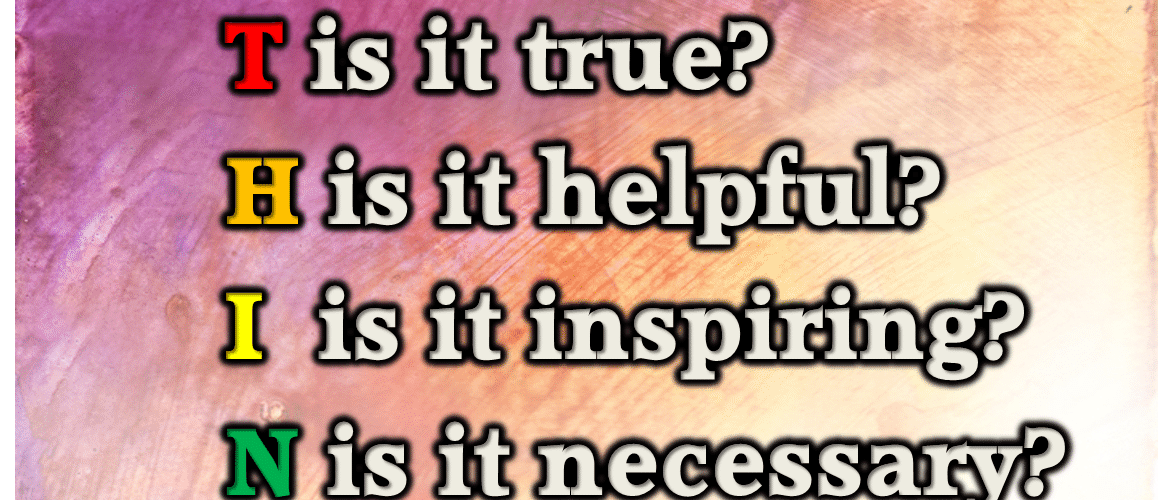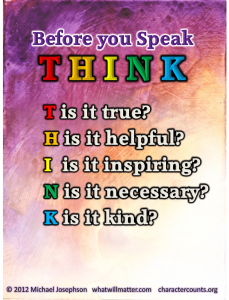We need our feelings and thoughts to help us read and respond to situations. But depending on our frame of mind, they can lead us to respond in ways that are unhelpful, disproportionate or perhaps even unkind.
If we don’t keep a check on our thoughts and feelings it is easy to get to a place where we react disproportionately to something because it’s the ‘last straw’!
“Being aware of where your feelings are coming from will help you avoid blaming those around you, and take responsibility for your own feelings.” Jaime Thurston, Kindness: the little thing that matters most
It can be helpful to consider our feelings about a situation (both ‘good’ and ‘bad’) when we are not ‘in the moment’. We can ask ourselves, “Is it really that situation that is making me feel this way? Do I need to consider it from another perspective?”
Even with situations that make us feel good, we should consider why they make us feel better. For example, I might need compliments from other people to make me feel good about myself. This can be rocky ground as it can mean we crumble when given criticism, even if it’s meant well.
It can be helpful to take our thoughts and feelings through some internal ‘filters’ or questions before we react. When we find our thoughts overwhelming, it is worth getting help from a good friend who can help us see a different perspective.
I like the reminder to ‘THINK before you speak’:
T – is it true?
H – is it helpful?
I – is it inspiring?
N – is it necessary?
K – is it kind?
These questions can help us evaluate a situation and make us reconsider our own feelings before responding in a way we might regret. They also help prevent us from building up negative emotions that can be damaging to our wellbeing.


